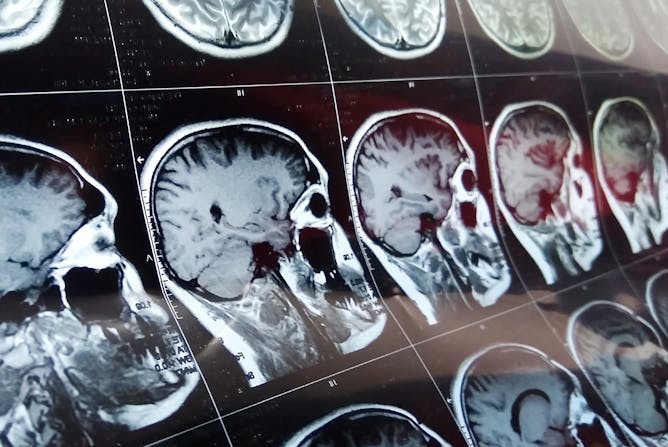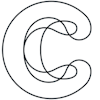|
Prime Minister Anthony Albanese will today announce the date for the Voice to Parliament referendum, widely expected to be in mid-October. While the “yes” and “no” cases have been in action for some time, the announcement of a date will see both sides switch up a gear.
You may already have received your pamphlet from the Australian Electoral Commission outlining both cases in the post. The AEC distributes the pamphlet, but it does not write the cases and they are not independently fact-checked.
However, legal experts Gabrielle Appleby, Paul Kildea and Sean Brennan have done that analysis, studying the claims from both the “yes” and “no” camps to see which arguments stand up and which don’t (and there’s quite a few of the latter).
As the referendum draws nearer, this kind of analysis is essential reading to ensure our votes are as informed as possible.
|

|
Amanda Dunn
Politics + Society Editor
|
|

Gabrielle Appleby, UNSW Sydney; Paul Kildea, UNSW Sydney; Sean Brennan, UNSW Sydney
The “yes” and “no” cases have outlined their arguments to be sent out to Australian voters. Here, legal experts examine the claims by both sides to see if they stack up.
|

Vincent Ho, Western Sydney University
Headlines about brain worms can be alarming. There are much more common parasites which can infect your body and brain and ways you can minimise your risks of being infected with one.
|

Peter Breadon, Grattan Institute; Aaron Yin, Grattan Institute
A new review of Australian health care workers’ scope of practice should focus on expanding pharmacists prescribing for stable conditions and long-term medications, under the direction of a GP.
|

Evgenii Krestianinov, Australian National University
A new study of the meteorite Erg Chech 002 makes it one of the most precisely dated space objects and changes our understanding of how elements were spread around the cloud of dust that formed the Sun and planets.
|

Dan Andrews, Crawford School of Public Policy, Australian National University; Elyse Dwyer, Macquarie University
New research finds Australian industries are becoming concentrated with greater power to charge high prices. Unlike US firms, Australian firms are not required to report merger plans to authorities.
|

Kim Beasy, University of Tasmania; Chloe Lucas, University of Tasmania; Gretta Pecl, University of Tasmania
In a new study, teachers spoke about the difficulties of teaching young people about climate change without adding to their fears.
|

Michelle Cameron, University of Waikato
For people with health conditions, disabilities or injuries that do not qualify for ACC, the road to recovery can be long and hard. It is past time for us to do better.
|

Tanya Dalziell, The University of Western Australia; Paul Genoni, Curtin University
Australian writer Charmian Clift was born 100 years ago today. One rivetting photograph of Clift captures the existential yin and yang explored in her work.
|
Politics + Society
|
-
Marie Segrave, Monash University; Chloe Keel, Monash University; Rebecca Wickes, Griffith University; Shih Joo Tan, Monash University
These women most often experienced workplace sexual harassment when they were in temporary, casual or contract positions.
-
Nicky Jones, University of Southern Queensland
In six months, the state’s parliament has voted to override its own Human Rights Act, not once but twice.
|
|
Health + Medicine
|
-
Lara Herrero, Griffith University; Wesley Freppel, Griffith University; Yong Qian Koo, Griffith University
It can be difficult to an appointment to see your GP. So when should you make the effort to see a GP for a prescription for influenza antivirals? And how effective are they?
-
Stephen Townsend, The University of Queensland; Alan Pearce, La Trobe University; Kathleen Bachynski, Muhlenberg College
Chronic traumatic encephalopathy is often assumed to be a disease which develops later in life, but a new study clearly shows it can start early in the brains of young athletes.
|
|
Science + Technology
|
-
Martin Brook, University of Auckland
Some New Zealand universities have proposed staff and course cuts in earth sciences. This could leave the country ill prepared to deal with natural hazards and extreme weather.
|
|
Environment + Energy
|
-
Geoffrey Heard, The University of Queensland; Benjamin Scheele, Australian National University; Conrad Hoskin, James Cook University; Jarrod Sopniewski, The University of Western Australia; Jodi Rowley, UNSW Sydney
Introduced species and diseases can drive native species into smaller environmental niches – and that could mean change to how we work to conserve them.
|
|
Business + Economy
|
-
Claire Mason, CSIRO; Haohui Chen, Data61; Louisa Warren, CSIRO
More Australian employers are keen to employ Indigenous workers, but a large-scale analysis of job adverts shows a mismatch between demand for and supply of Indigenous talent.
-
Peter Martin, Crawford School of Public Policy, Australian National University
Far from finding an ‘ageing time bomb’, the report paints a picture of a society in which the ratio of working Australians to dependents is little changed, with climate change the only big concern.
|
|
| |
|
|
|
Auckland University of Technology
Auckland, New Zealand
•
Full Time
|

|
|
Auckland University of Technology
Auckland, New Zealand
•
Full Time
|

|
|
The Conversation AU
Melbourne VIC, Australia
•
Full Time
|

|
|
|
|
| |
| |

|
| |
| |
| |
Featured Events, Courses & Podcasts
|
View all
|
|
6 July - 6 October 2023
•
|

|
4 - 8 September 2023
•
Carlton
|

|
31 August 2023
•
Caulfield
|

|
5 - 6 September 2023
•
Brisbane
|

|
|
|
|
| |
| |
| |
| |
| |
|
|